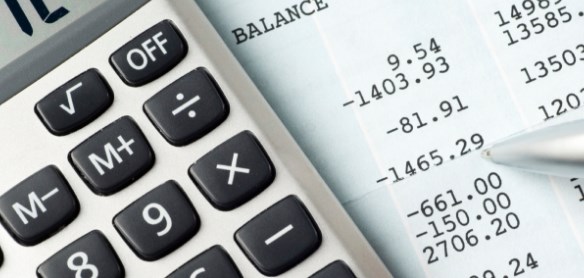Blog

Why you should analyze debtors before investing in litigation
You’ve sent multiple invoices, letters, and emails. You’ve tried calling. Maybe you even went as far as to work out a payment plan. Still, the client owes you money.
So you decide to take the matter to court.
But before you do, make sure you have a decent chance of collecting.
In fact, when the time comes to consider litigation, you should analyze the decision as you would an investment.
It may seem counter intuitive to treat litigation as an investment decisionwhen you’ve already earned the money owed to you. But the litigation process is time-consuming and costly. As such, it’s possible to spend more trying to collect a debt than what you actually retrieve in the end. Over half of all judgments never get collected.
When investing, one way to potentially minimize risk is to conduct thorough research on the investment opportunity.
For example, most business owners wouldn’t invest in an expansion project unless they crunched the numbers to determine that they would eventually profit from the venture. Likewise, prudent investors typically won’t buy stock in a company until they’ve thoroughly reviewed financials, analyst reports and industry data.
This is also how you minimize the risk of losing money on collection litigation: Research the entity from which you are attempting to collect.
Where to begin
One of the first questions you should answer is whether the company is still operating. The odds of collecting on a debt from a non-operating company are extremely low. Unless a closed company still has assets that could be used to pay off a judgment, there is no chance of collecting.
In some cases, you can verify a company is still in business just by calling or driving by its location. On the other hand, you may have to verify that it’s discontinued its operations, in which case suing does not make sense. You can try an Internet search for any media articles announcing its closure.
You should also try to ascertain if the company will be in business a year from now. As mentioned, litigation is a lengthy process. If the company is headed for closure, it could cease operations before you even win a judgment.
Determine the legal structure of the company
The structure of the company may also determine the likelihood of collecting a debt. If the business is/was a corporation or limited liability company, then the actual owners or shareholders have no personal liability. That means you can’t sue the individuals to collect a business debt.
On the other hand, if the company was a sole proprietorship or general partnership, then both the company’s assets and the owners’personal assets are fair game.
Corporations and LLCs have to be registered within their states, usually with the secretary of state office. Most secretary of stateshave a free search portal on their websites so you can quickly determine if the entity was registered.
If the business has stopped operating and the owner(s) does not carry any personal liability, you should generally forgo litigation. If the owner(s) does have personal liability or a personal guaranty, the next step is to determine the financial health of that individual(s) to make sure they have the ability to pay if you win.
What other obligations do they have?
Let’s say the business is still operating. Another factor that will determine your odds of a favorable return on litigation investment are the debtor’s other debts and obligations. Chances are, you are not the only person the debtor owes.
Your research should include a list of tax liens, secured creditors, and judgments on the actual company and any guarantors. If the company or owner is the target of tax liens or foreclosure proceedings, is upside down on their mortgage, has recently gone through a divorce or medical issues, the chances of collecting are lower
Has the company or owner filed bankruptcy?
A debtor who has filed for bankruptcy has been provided an automatic stay during which all judgments and collections activities are suspended. Creditors may not pursue debts that arose before the bankruptcy filing.
The bankruptcy court will prioritize some debts over others. Taxes and any public debt will take precedence, followed by secured debt, then priority debt such as alimony or child support. If your debt doesn’t fall into one of those categories, you will be trying to claim any leftovers, assuming there are any.
In cases where the owner of a business files for personal bankruptcy but not corporate bankruptcy, it is an extreme negative indicator. If someone is not making enough money at the company they owned to keep their personal financial situation in good health, it is a sign that the company may not be that profitable and have the funds available to pay off a judgment.
You may need help to compile data
These steps assume that you can even efficiently locate the debtor, which is not a given. Companies close, get sold, or even change their name. You may need to do extra digging to find a debtor under a new identity, or enlist the services of a company that can help you locate hard-to-find debtors.
Fortunately, much of the data you need to conduct this analysis is public record and available through internet searches. Even with the accessibility of online records, however, it may take considerable effort to compile all the necessary data. But it’s worth the investment now to avoid losing money on the collection process.
Another potential solution may be to work with a collection agency that has the research facilities and years of experience at evaluating these situations. Not only can they collect and analyze data on debtors to determine the likelihood of collecting, they may also litigate on a contingency basis, meaning you won’t pay for their litigation services unless you actually collect.



Comments